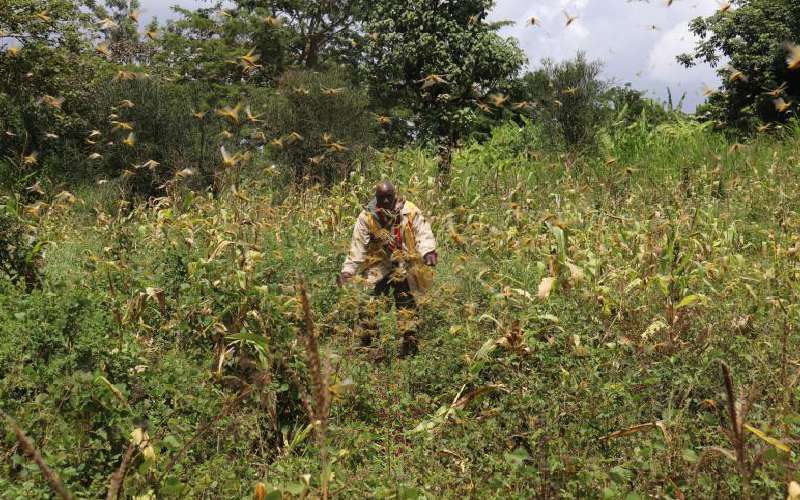×
The Standard e-Paper
Stay Informed, Even Offline

Douglas Kinyua chases away desert locusts from his farm in Kamiu area, three kilometres from Embu town. [Joseph Muchiri, Standard]
Significant gains have been made in the fight against the desert locust upsurge in East Africa, the United Nations' Food and Agriculture Organisation (FAO) has said.